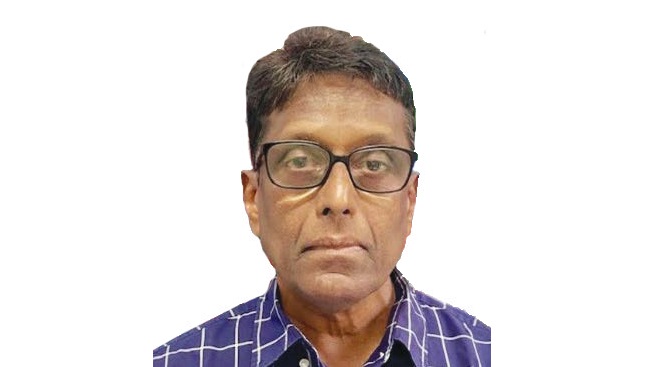Inculturation of faith
During the festive season, when many cultural celebrations take place, the inculturation of faith within the Catholic Church often becomes a focal point of discussion among many Catholic faithful.
Feb 28, 2025

Turun Padang - Christopher Kushi
During the festive season, when many cultural celebrations take place, the inculturation of faith within the Catholic Church often becomes a focal point of discussion among many Catholic faithful. With the widespread use of social media, videos of the cultural influences that permeate into the Catholic Mass have become more visible than ever before.
What worries people is the fear that cultural practices may be misrepresented as religious. Naturally, there are those who resist change, preferring to stick to established ways of worship and practice. I have received queries from individuals who mention feeling uneasy with such practices and not understanding why there is a need for them. Supporters argue that these are purely celebrations of cultural traditions and not religious practices. This exposure highlights the ongoing polemics between tradition and contemporary cultural practices within the Church. The argument made by both sides have merit, but in the end, we adhere to official Church teachings and practices.
Inculturation of faith is a profound and dynamic process that involves integrating the Christian faith with various cultural practices. This is especially true in Malaysia, where the rich traditions and cultures truly embody the essence of Asia with all its rich traditions and cultures. Positively viewed, inculturation is not merely about adapting religious practices to fit cultural norms but rather about fostering a deeper and meaningful dialogue between faith and culture. The engagement between the Gospel and a specific culture is a task entrusted to theologians. Their goal is to conceptually safeguard the Gospel’s integrity while fostering an awareness and sensitivity to diverse cultural contexts.
Pope Francis, in his Apostolic Letter appointing Cardinal Sebastian Francis, Bishop of Penang, to the Cardinalate, eloquently shares the beauty and universality of the Catholic Church. This Apostolic Letter serves as a message to the Catholic faithful from our Holy Father, emphasising the importance of embracing the Inculturation of Faith. Pope Francis has enumerated the following points:
“The rich reality of the Church in her variety of languages and cultures; that is her universality, which has nothing to do with uniformity.
Universality was revealed on the morning of Pentecost by the symphonic unity of “Parthians, Medes, Elamites, and residents of Mesopotamia, Judea and Cappadocia, Pontus and Asia, Phrygia and Pamphylia, Egypt and the parts of Libya belonging to Cyrene, and visitors from Rome, both Jews and proselytes, Cretans and Arabs” (Acts 2:9-11).
The call to universality impels us to implant the faith in every culture, each with its own values and distinctive characteristics (inculturation of the faith). A faith incapable of inculturation is not a genuine faith, for it succumbs to the temptation of “uniformity”, typical of a rigid way of thinking. At the same time, alongside the inculturation of faith, there is the evangelisation of cultures. These two aspects – inculturation of faith and evangelisation of cultures – are inseparable.”
In reference to the event at Pentecost, Pope Francis emphasises the universality of the Church, celebrating its diversity, integrating and respecting various cultural practices, and avoiding the trap of uniformity. The three salient points our Holy Father forwards is the universality of the Church, the inculturation of faith and the evangelisation of cultures.
In this regard, Simon Wong, Head of the Penang Diocesan New Evangelisation Commission (PDNEC) has thoughtfully organised an Interactive Forum titled Inculturation of Faith to be held on March 30 at the Cathedral of the Holy Spirit, Penang. The event will feature a distinguished panel comprising Fr Michael Cheah, Fr Arulnathan Joseph, Fr Desmond Jansen and Deacon Lazarus Jonathan. This panel will delve into and explain the blending of Christianity with local culture, Chinese inculturated Mass, ancestral veneration and the Ponggal festival, all within the context of the Inculturation of Faith. The forum promises to be an enlightening discussion that bridges and explains cultural traditions and faith practices. Simon mentions that many people want to question and understand from Church clergy on how the Church draws the line between cultural and religious practices.
The overall sentiment regarding inculturation is one of positive reception towards the integration of Asian cultural elements into Church practices, particularly during cultural celebrations. Malaysia’s rich cultural diversity offers a unique opportunity for the Malaysian Church to celebrate this richness in unity with the Universal Church, both in liturgy and pastoral life. The Church’s mission must always remain relevant to local communities, recognizing that culture is an integral part of a person’s identity.
Reflecting on my earlier years, I remember how commonly the term “Roman Catholic Church” was used. Today, however, I find myself more aligned with identifying as a member of the “Universal Catholic Church”. This shift highlights a broader embrace of the Church’s universal nature and inclusivity, signifying a deeper connection with its global and diverse community.
The Federation of Asian Bishops Conference (FABC) in 2023 have stated the FABC continues to engage in a three-fold dialogue: with Asian peoples (especially the poor) through efforts towards integral development, Asian cultures (inculturation), and Asian religions (interfaith dialogue). This vision of a “triple dialogue” has constructively guided the FABC for over the five decades. The local Asian Churches are committed to the challenge of inculturating the Christian faith in the Asian milieu. The FABC has expressed this vision in one of its early documents: “The decisive new phenomenon for Christianity in Asia will be the emergence of genuine Christian communities in Asia - Asian in their way.
Christopher Kushi possesses experience across a diverse array of job portfolios both in government and private sector. He is happy to share his professional journey and is engaging with the principles outlined in Pope Francis’ encyclical Fratelli Tutti to transcend border and embrace a culture of fraternity, social friendship and dialogue.
(The views expressed are entirely the writer’s own.)







Total Comments:0